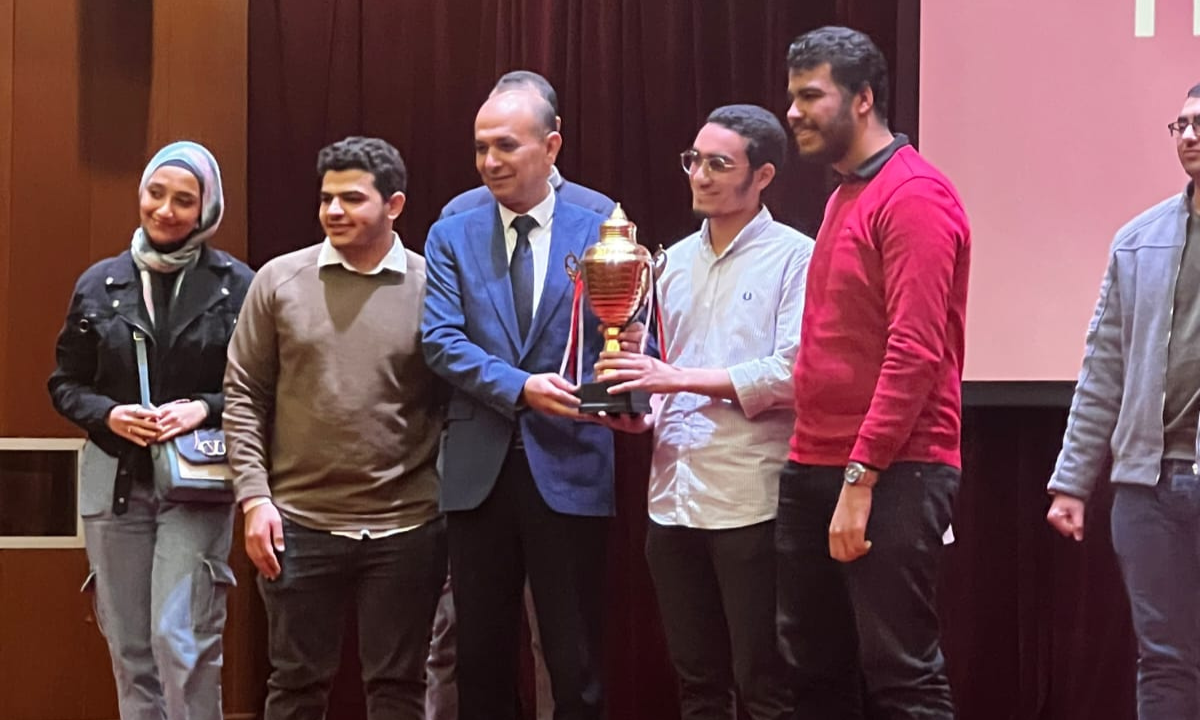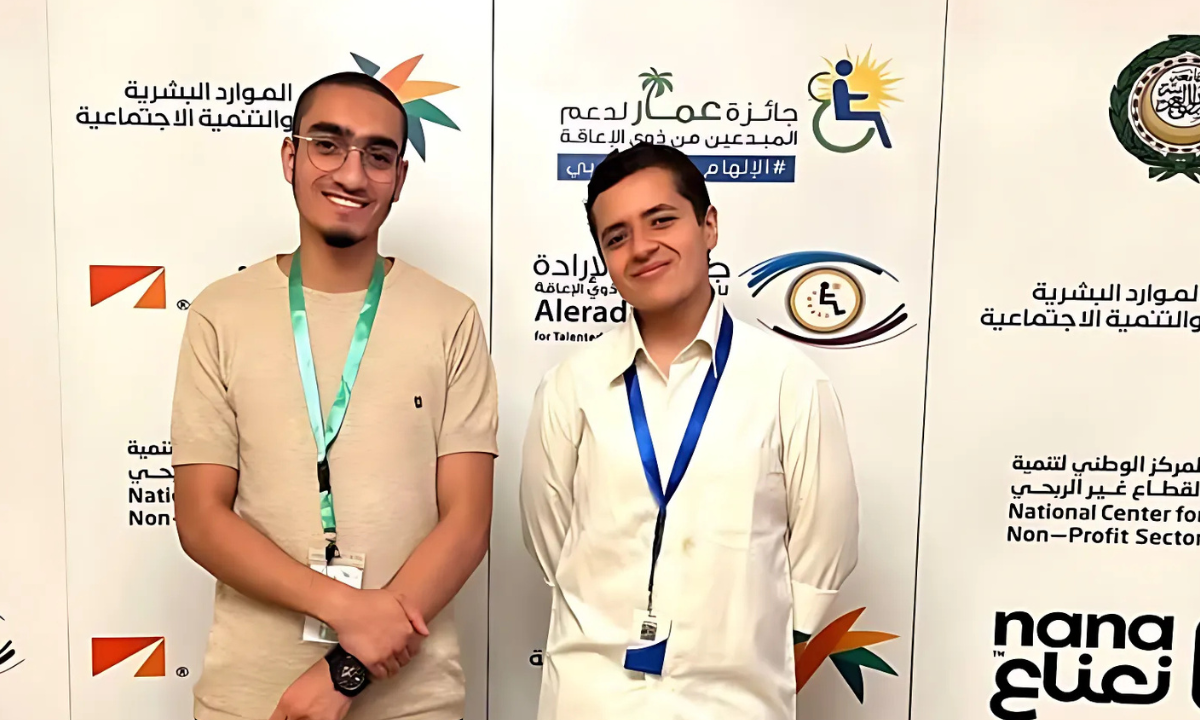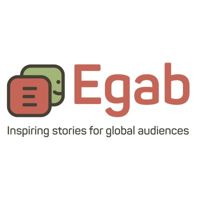How an Egyptian app developer fixed his own speech impediment with AI-powered tech
Why It Matters
Experts say the app bridges a significant care gap in the Middle East. There, awareness of speech therapy is limited, and there are few academic programs train new therapists.

By Mariam Mokhtar
Growing up in the delta city of Mansoura, Egypt wasn’t easy for Hamza Abu-alkhair.
“I was bullied,” Abu-alkhair said. “This led to a general speech disorder and stuttering. I became an introvert and isolated myself from all social gatherings.
“For a long time,” said the 23-year-old engineering student at Mansoura University, “I was defined by my speech disorder, which started with difficulty pronouncing the ‘r’ sound.”
When he was older, Abu-alkhair sought medical help but soon enough, he realized that speech therapy centres were mostly dedicated to children.
“It was embarrassing, so I was determined to do something about it,” he said.
And in 2021 at barely 19, he did.
The result was Lothgha App, (lothga means lisp in English) a groundbreaking application that first launched in Arabic and then English and focuses on treating speech problems in a unique and innovative way.
Using 2D technology, Abu-alkhair created animations that help users practice their pronunciation.
The app then offers tailored speech sessions to address various speech difficulties. Users also have the option to book consultations and follow-ups with expert speech therapists, ensuring comprehensive support and guidance throughout their journey towards recovery.
“I built the app and I was its first user,” said Abu-alkhair, his “r”s rolling effortlessly off his tongue.
His recovery could be the story of more than 50,000 other users in the Middle East and beyond who have downloaded the application and are actively using it.

About 70 million people worldwide suffer from speech disabilities. In the Arab world, access to good speech therapy is often limited due to cost, availability, and social stigma.
“My passion is related to social humanitarian technological entrepreneurship,” Abu-alkhair explained.
“I was looking for an idea that benefits humanity and achieves profit, even if it is in the long run, because making people happy and alleviating their pain is in itself an achievement.”
Working alongside his studies to fund the development of Lothgha, Abu-alkhair stuck with the app’s exercises for three weeks until his speech improved.
The success encouraged him to enter startup competitions, where Lothgha won first place in the Middle East and Africa in several competitions, including the Huawei Global Competition with a USD $20,000 prize in 2023.
In the same year, the application received 250,000 Saudi Riyals (about $95,000) in a competition in Saudi Arabia organized by venture capital company STC Group. In 2024, Lothgha reached the final qualifiers of the global Hult Prize competition in Britain and obtained a distinguished investment qualification program.
One of the app’s success stories is 16-year-old Youssef Abdullah, who has been using Lothgha to treat his own difficulties pronouncing the “r” sound.
“The exercises are accompanied by characters with an emotion graphic system to explain the instructions and pronounce the letter correctly,” Abdullah explained.
“The exercises associated with tongue movements are initially tiring for the mouth, but with perseverance, everything becomes easy.”
After intensive use for a month with the premium feature, Abdullah’s friends and family noticed a significant improvement in his pronunciation.
“The application sends me notifications according to the daily training appointments that I chose, and I appreciate the gradual difficulty progression of the exercises, starting with simple words with few letters, then advancing to more complex ones.”
Behind Lothgha’s success is a team of dedicated professionals, including Engineer Monem Osama, who handles the technical aspects.
“Through artificial intelligence, we succeeded in placing more than 150,000 words as exercises for all the letters of the language, which is not currently available in any other application,” Monem said.
The app includes three levels of mastering correct pronunciation and tests to estimate the user’s linguistic level.
Users can choose between free daily exercises or subscribe to the premium level for intensive exercises and specialist follow-ups.
Reem Mohammed, a speech specialist with a bachelor’s degree in childhood education and a diploma in speech and communication disorders, has been working with Lothgha since 2023. She believes the platform revolutionizes therapy delivery.

“The idea of having a mobile application for speech and sound therapy is new in the Arab world,” Mohammed said.
“I communicate with clients via video at specific times that I choose from within the application, and it provides me with all the various exercises required for clients.”
For Mohammed, the app offers flexibility that traditional speech centres cannot match. “The application saves me money, time, and effort. I can combine work in a speech centre with working remotely through the application at times I choose. The app also handles appointment scheduling and payment processing electronically.”
The Egyptian Lothgha team collaborates with international consultants to continuously improve the application. They plan to replace the current system with a gamified approach to strengthen user engagement and motivation.
“We will introduce a games system so that clients are more strongly connected to the application and can accomplish more exercises,” said Monem.
“We plan to link the exercises with shapes like ‘hearts’ that decrease as clients complete exercises, giving them options to wait for free refills or subscribe to the premium level.”
Katie Seaver, a U.S.-based speech-language pathologist and consultant for The Babel Group who serves on Lothgha’s advisory committee, believes the application bridges a significant gap in the Middle East. There, awareness of speech therapy is limited, and few academic programs train new therapists.
“Lothgha has already helped many users improve their pronunciation,” Seaver said.
“The team now aims to improve the user experience by adding AI to conduct initial examinations of pronunciation errors and provide progress updates based on individual improvement.”
This innovation is particularly significant because it means “people who may not be able to access a speech therapist will get a valid examination and test of their speech through the application and will not progress to the next level of complexity until they master it.”
Looking ahead, the Lothgha team plans to cooperate with speech centres to provide free services and licensed international tests within the application. They’re also developing a separate application dedicated to children with speech issues.
Seaver hopes Lothgha’s success will increase awareness that speech disorders are treatable and encourage Arab countries to unify speech therapy programs and research among Arabic speakers.
For Abu-alkhair, what began as a personal journey to overcome his own speech impediment has transformed into a mission that is changing thousands of lives.
With his “r”s now perfectly pronounced, he stands as living proof of his creation’s effectiveness, turning what once defined his limitations into the foundation of his greatest achievement.
The article is published in collaboration with Egab.

